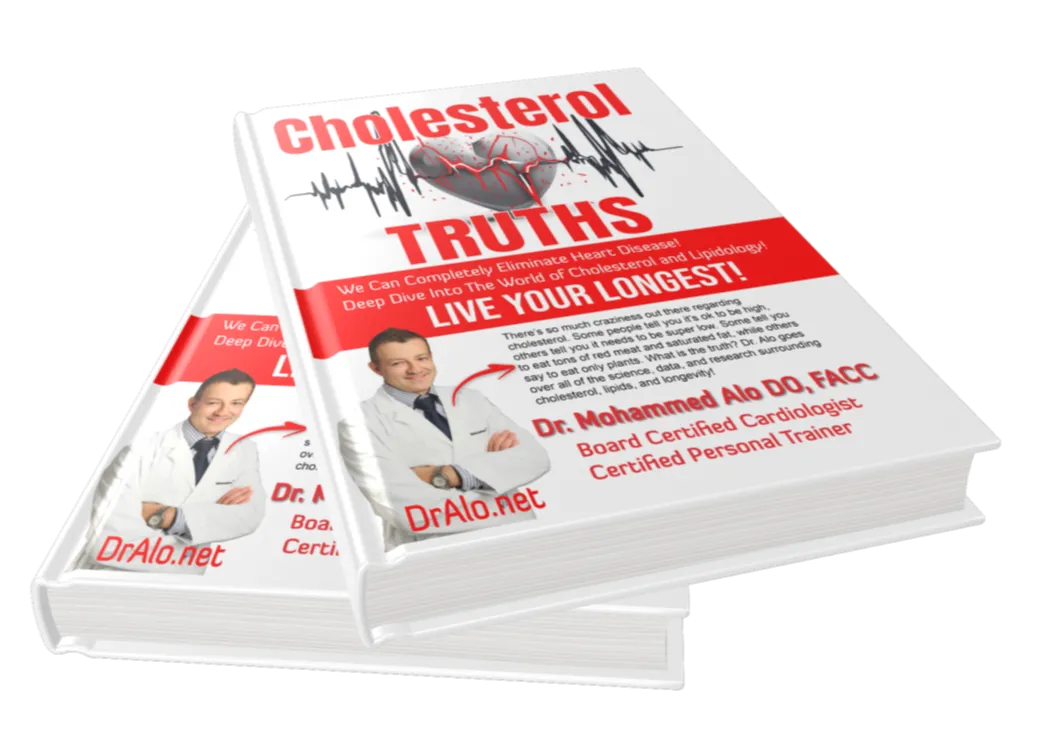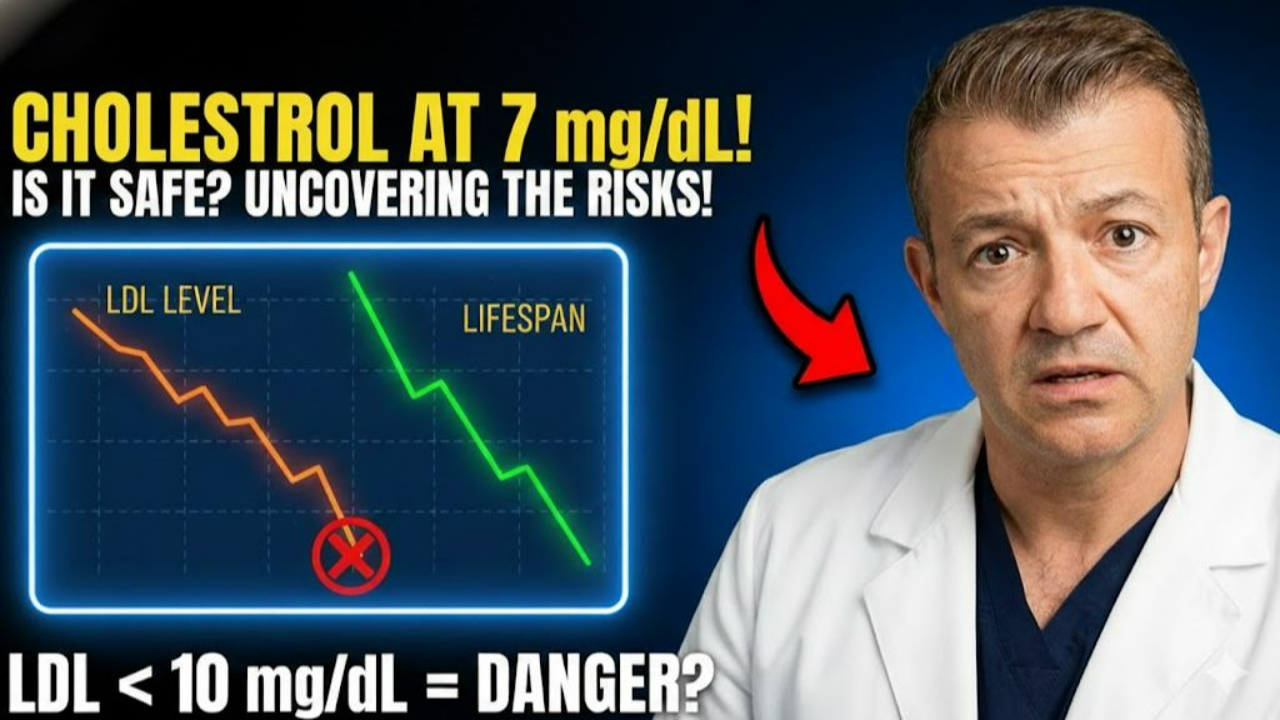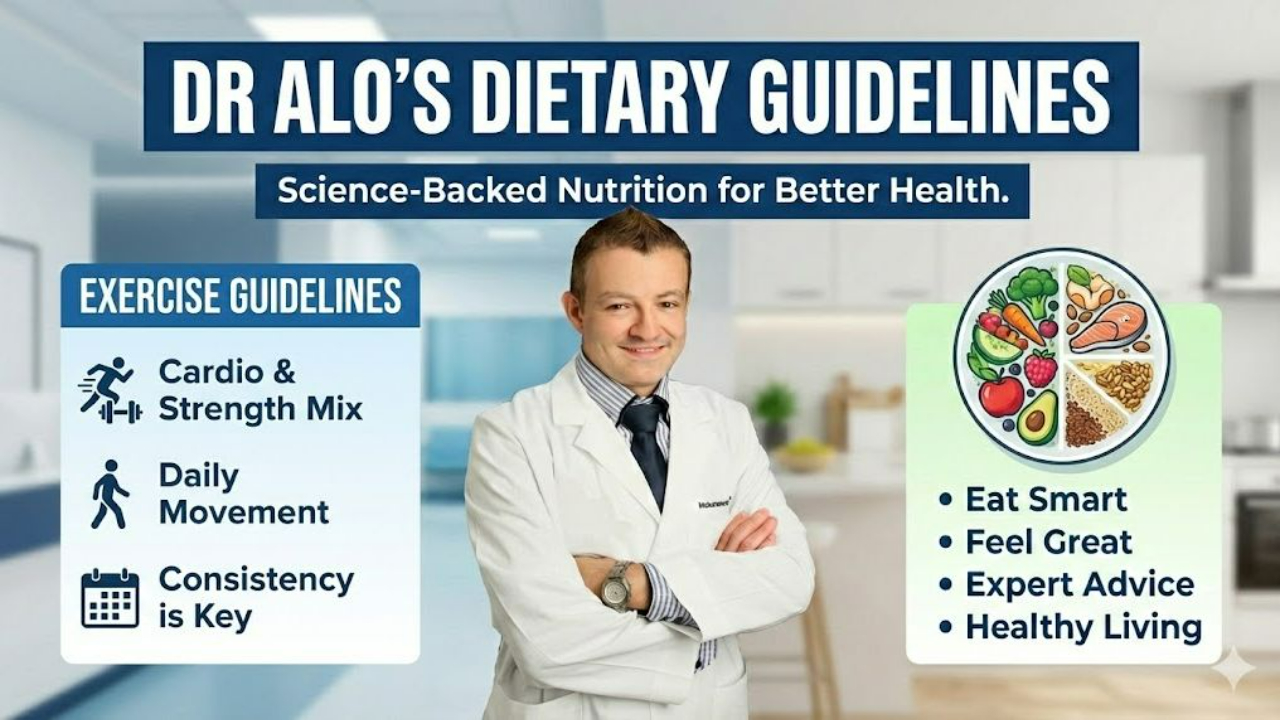Do Statins Really Only Add 4 Days To Your Lifespan?
Mar 24, 2024
How Much Longer Do You Live On Statins?
Do statins really increase your lifespan or healthspan? I get this question a lot from patients and people online. How much longer will I live if I take a statin medications. Why should I take a medication if it really isn't going to improve my quality of life or the length of my life?
Do Statins Only Add 4 Days To Your Lifespan?
Another claim made by the anti-cholesterol Medfluencers is that taking statins only adds 4 days to your lifespan. If you have followed me for a while, you realize that this is utter nonsense. There are even a few “cardiologist medfluencers” selling contrarian anti-cholesterol and anti-statin books that base their entire career on this claim.
There is no doubt that modern medicine has added 30-50 years to lifespans. If you have read other sections of this blog or watched my videos, you will see that even in just cardiology, we have reduced death rates from cardiovascular disease 70% since 1968 and another 10% in just the last 10 years.
Let’s start by looking at world population levels.

From:
https://www.worldometers.info/world-population/
In the year 1850, a 15 year old had a median lifespan of 35. that means half of all 15 year olds would be dead by age 35. This eliminates infant mortality from the equation, because they have already lived and survived all of the possible causes of infant death (because they made it to age 15)
In 1986, we had 4.9 billion people on earth. Most of us remember that and recall thinking that was an astonishingly large number. In 2023, we have over 8 billion people on earth and the number keeps growing.
Sure, much of this growth is due to improved living conditions, less war, improved infant mortality rates, antibiotics, clean drinking water, and large-scale agriculture. But a large portion of the population explosion since the 1980s is due to modern medications and therapeutics. As an aside, the first statin hit the market in 1987.
So, how do they reach the conclusion that you only add 4 days to your lifespan?
Statins And The Extra 4 Days Myth
It appears to be based on a study published in the British Medical Journal Open Edition titled, “The effect of statins on average survival in randomized trials, an analysis of end point postponement”.
The study looked at statin studies up to 2009, and later added 2010 and 2011. The number of studies used in this analysis was only 11. This is very low. They included studies that tracked all-cause mortality data. These studies lasted 2 to 6 years. Further, approximately 43,000 of the patients in these studies were on the weaker statins, pravastatin and simvastatin.
They concluded that statins added 1 to 4.8 days of lifespan based on their models and projections.
If you have gotten this far in this blog, you already know the inherent problems of this study. The authors know too. But let’s go through them one by one.
Looking at studies that only followed people for 2-4 years on average, will not give you robust data on all-cause mortality. At all. Full stop. Read the blog on why chasing all-cause mortality in medical therapeutic studies is not helpful and absurd.
Statin Potency Used In The Study
Many of the studies included the weakest statins, and when the studies used atorvastatin and rosuvastatin (more portent statins), many times they were at much weaker doses. Sure, sometimes they had a higher dose, but that doesn’t change the point. This reduces and diminishes effect size. They also had to be stopped early.
They also used data that was available up until 2009, and maybe up to 2011. Most statin studies up until that point were mostly on weaker statins and for short periods of time. The first statin (lovastatin - brand name Mevacor) to acquire FDA approval came on the market in 1987.
It was not until 2004 that statins published their outcome trials (simvastatin in 4S and pravastatin WOSCOPS). Afterwards, several synthetic statins were developed. In order, fluvastatin (Lescol), atorvastatin (Lipitor), cerivastatin (Baycol - subsequently removed by FDA), rosuvastatin (Crestor), and pitavastatin (Livalo). All, except cerivastatin, have randomized control trials showing reductions in MACE. Currently all statins, except Livalo, are available as generics.
It wasn’t until 2001 that rosuvastatin came to market and was widely available. Because it wasn’t generic until 2016, most people were not on the most potent statin. Or not on it for very long when this data was published.
Statin Data Interpretation And Interpolation
Further, taking a snapshot of 2-4 years and extrapolating it over a lifetime isn’t accurate, since we now know that risk reduction is cumulative, and the absolute risk reduction improves drastically over time. See the above sections regarding the area under the curve.
The authors own conclusions found that when you examined the 4S trial results, people on simvastatin for 5.8 years, actually added 27 days to their lifespan. Simvastatin also demonstrated a reduction in all-cause mortality and a very impressive > 6% absolute risk reduction. This is not the most potent statin either. But the authors never bothered to evaluate this data or include it.
The starting dose of simvastatin in the 4S trial was 20mg but could be changed to 10mg or 40mg as the trial went on by the physicians and investigators. The 4S trial dramatically reduced events in familial hypercholesterolemia patients who had ASCVD. This was an incredible history making trial.
Based on these early trials, we knew the effectiveness of statins, long before we had more potent statins.
Even these smaller absolute risk reductions, carried out on a long enough time horizon, would increase and the area under the curve (AUC) extensively. See the previous discussion on absolute versus relative risk and the AUC.
The authors also explained that this is the survival gain only during the trial time. For example, if you are in a trial for only 2 years and you increase your lifespan by 2 months, all we can conclude is that being on that medication for 2 years increases your lifespan by 2 months.
Statin Trials Extending Lifespan And Healthspan
For example, the JUPITER trial was supposed to run for 5 years, but was stopped early due to tremendous benefit and only ran 1.9 years. They conclude that this means that being on Crestor 20mg for only 1.9 years adds the 7.25 days to your lifespan. Assuming you stop taking it after those 1.9 years and nothing else changes.
In this instance, being on rosuvastatin 20mg daily for 1.9 years will add 7.25 days of lifespan to your life. That’s all we can conclude. This ignores and assumes no compounding or cumulative effects. Just that 2-year intervention alone adds 7 days to your life.
Again, the effects of statins are cumulative and the area under the curve will expand.
The authors also stated, in their own discussion, “There are a few studies with long-term follow-up after cardiovascular intervention trials showing that this survival might be substantial”.
We also have 20 year data from WOSCOPS trial that has been published. Statin treatment for only 5 years was associated with a legacy benefit, with improved survival and a substantial reduction in cardiovascular disease outcomes over a 20-year period long after the medication was stopped.
Long-term Data On Statins
The 20 year WOSCOPS data was for men who were on pravastatin for 4.9 years, but not taking it in the last 10 years. So, they took pravastatin (weaker statin) for about 5 years and did not take it again. After 20 years, there was a 13% reduction in all-cause mortality, 21% reduction in cardiovascular mortality, and an 18 to 24% reduction in hospitalization rates due to any coronary event or myocardial infarction, respectively.
Read the 20 year follow up, it’s an easy read and full of data:
https://www.ahajournals.org/doi/10.1161/CIRCULATIONAHA.115.019014
The authors also noted that when you looked at the Kaplan Meier survival curves in the 4S trial and calculated the area under the curve, you actually had a postponement of “any cardiovascular endpoint” of 109 days. Imagine just taking a medicine for 5 years and delaying a heart attack or stroke by 3-4 months. Now imagine if you stayed on that medication and kept your LDL-C and apoB low for decades?
Further, they stated that there is inherent selection bias since they could only include 11 trials.
The author’s final thoughts?
“We believe that statins should be prescribed according to the prevailing guidelines. Statins are usually inexpensive and safe, at least in a clinical trial setting, and the benefit in terms of mortality or non-fatal cardiovascular outcomes cannot reasonably be challenged”.
That’s their exact words.
Read the full study:
https://bmjopen.bmj.com/content/5/9/e007118
Statins Add Decades To Our Lifespans and Healthspans
With all of that said, it's pretty obvious that statin medications have been the single greatest advancement in cardiac care in the last 100 years. In the 1950s and 60s, most people worldwide died of heart disease, this number continues to dwindle.
And to think it all started from a molecule in a fungus.
Next time you hear someone say that statins only add 4 days to your lifespan, send them this article!
This blog post is adapted from my Cholesterol Book. Click here to sign up to be the first to know when it will be released and to be a part of the launch teach and get exclusive access to additional charts, graphics, audiobooks, and bonus chapters! https://dralo.net/cholesterol
Still Have Questions? Stop Googling and Ask Dr. Alo.
You’ve read the science, but applying it to your own life can be confusing. I created the Dr. Alo VIP Private Community to be a sanctuary away from social media noise.
Inside, you get:
-
Direct Access: I answer member questions personally 24/7/365.
-
Weekly Live Streams: Deep dives into your specific health challenges.
-
Vetted Science: No fads, just evidence-based cardiology and weight loss.
Don't leave your heart health to chance. Get the guidance you deserve. All this for less than 0.01% the cost of health insurance! You can cancel at anytime!
[👉 Join the Dr. Alo VIP Community Today]




















